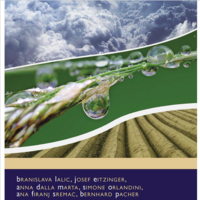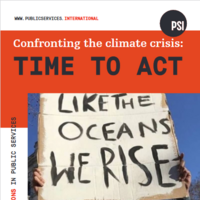Search
Books+
Searching 1,73 books
Search related to the career Meteorologist
Challenges of Being a Meteorologist
1. Complex and Dynamic Weather Patterns: Meteorologists face the challenge of understanding and predicting the ever-changing and intricate nature of weather patterns. Weather systems can be highly complex, influenced by various factors such as temperature, humidity, air pressure, and wind patterns.
2. Uncertainty and Inaccuracy: Weather forecasting is inherently uncertain due to the complexity of atmospheric processes. Meteorologists must deal with the challenge of providing accurate predictions while acknowledging the inherent limitations and potential errors in their forecasts.
3. Rapidly Evolving Technology: The field of meteorology heavily relies on advanced technology and computer models. Meteorologists need to continuously adapt to new tools, software, and data sources to improve their forecasting abilities. Keeping up with the latest technological advancements can be a significant challenge.
4. Communicating Complex Information: Meteorologists must effectively communicate complex weather information to the general public. Translating technical jargon and scientific concepts into easily understandable terms can be challenging, as meteorologists need to convey the potential impacts and risks associated with weather events accurately.
5. Working under Pressure: Meteorologists often work in high-pressure environments, especially during severe weather events. They must make critical decisions quickly and accurately, providing timely warnings and advisories to protect lives and property. The pressure to perform well under such circumstances can be demanding.
6. Working Non-Standard Hours: Weather does not adhere to a 9-to-5 schedule, and meteorologists often work irregular hours, including nights, weekends, and holidays. This can disrupt personal routines and make work-life balance a challenge.
7. Dealing with Public Expectations: The public often has high expectations of meteorologists, especially during significant weather events. Meteorologists may face criticism or scrutiny if their forecasts do not align perfectly with the actual weather conditions. Managing public expectations and addressing concerns can be a challenge.
8. Continuous Learning and Professional Development: Meteorology is a field that requires continuous learning and staying updated with the latest research and advancements. Meteorologists must invest time and effort into professional development to enhance their skills and knowledge.
9. Emotional Toll: Meteorologists may experience emotional stress when dealing with severe weather events that cause damage, injuries, or loss of life. Witnessing the impacts of extreme weather can take an emotional toll on meteorologists, requiring them to prioritize self-care and mental well-being.
10. Balancing Short-term and Long-term Forecasts: Meteorologists need to balance short-term weather predictions with long-term climate projections. While short-term forecasts focus on immediate weather conditions, long-term climate predictions involve studying trends and patterns over extended periods. Balancing these two aspects can be challenging.
Overall, being a meteorologist requires a combination of scientific knowledge, technological proficiency, effective communication skills, and the ability to handle the pressures and uncertainties associated with weather forecasting.
Source: Various AI tools
Changamoto
Uandishi wa habari
Searched in English.























